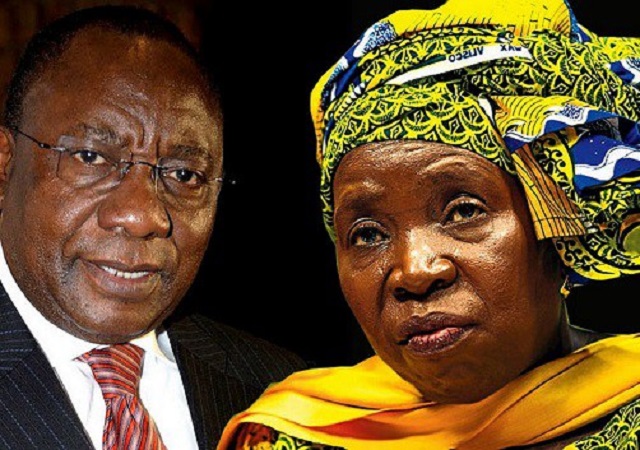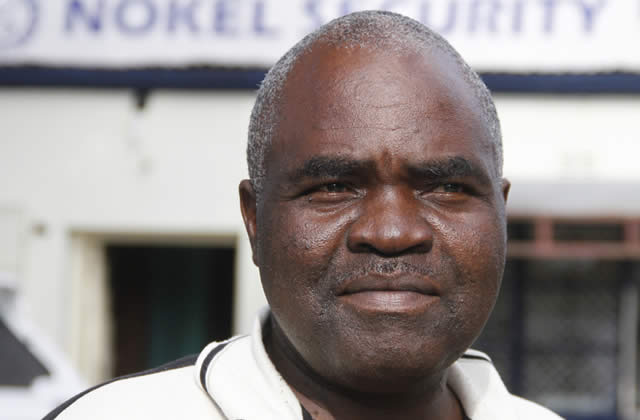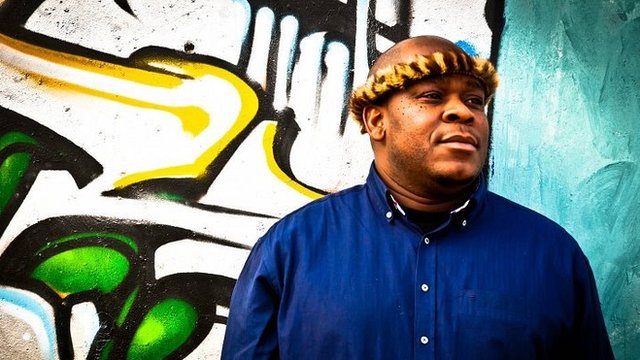Ramaphosa wins ANC leadership vote


ANC national executive committee member Nkosazana Dlamini Zuma and Deputy President Cyril Ramaphosa — Reuters
Soweto (South Africa) — Cyril Ramaphosa, South Africa’s deputy president, has been elected as the new leader of the ruling African National Congress (ANC), narrowly defeating Nkosazana Dlamini-Zuma, after a series of tense sessions at the party’s conference.
The ANC announced yesterday that Ramaphosa had defeated President Jacob Zuma’s preferred candidate, Dlamini-Zuma, the former chairperson of the African Union Commission, to become the leader of Africa’s oldest liberation movement.
More than 4 700 delegates cast their ballot in a marathon voting session that began late on Sunday and continued until mid-morning yesterday.
Ramaphosa won 2 446 votes, to Dlamini-Zuma’s 2 261.
He will replace Zuma as ANC president and almost certainly run as presidential candidate when South Africa takes to the polls in 2019.
Zuma will remain as president until then, but it is possible that Ramaphosa and the new national executive may recall him over a series of allegations of graft that has dogged his tenure as president.
The announcement of the results marked the end of a bitter leadership race that threatened to split the party, with the two leading candidates presenting completely different visions for the future of the country.
Voting had been initially delayed after ANC officials battled to vet delegates, forcing the conference itself to start late. Hundreds of delegates were also disqualified from voting.
Earlier yesterday, Zuma told reporters that he was bowing out happily.
“I’m bowing out very happy because I think . . . I made my contribution. So I am very happy.”
In his final address as ANC president on Saturday, Zuma appeared to endorse Dlamini-Zuma when he said that it was a milestone that there were three female candidates in the initial seven-way race for the party’s leadership.
He also blamed ill-discipline among party cadres and factionalism for the failures of the party. He made no mention of the ways in which he had brought the party into disrepute over several allegations of corruption.
In a boost to Ramaphosa, courts ruled that officials from some provinces seen as supporting Dlamini-Zuma had been elected illegally and were barred from the conference.
The rand currency ZAR=D3 rose yesterday and government bonds firmed on hopes Ramaphosa would win the race.
“The rand is considerably stronger than where it was last week,” said IG Markets currency strategist Shaun Murison.
“I think a Cyril Ramaphosa win is priced in.”
Ramaphosa drew the majority of nominations from party branches scattered across the country. But the complexity of the leadership race meant it was far from certain he will win when the votes are finally counted.
For one, delegates are not bound by their branches when they vote at the conference.
Lukhona Mnguni, Political analyst at University of KwaZulu-Natal, said the outcome of the ANC leadership contest was likely a managed arrangement, with discussions behind the scenes.
“This idea that the power is in the branches is a ruse by leaders to hoodwink society into thinking they are impartial and make branches think they have control over their own destiny,” Mnguni said.
On Saturday, Zuma announced plans to raise subsidies for tertiary colleges and universities, a move analysts said was timed to appeal to the party’s more populist members allied to Dlamini-Zuma, the first woman nominated as an ANC presidential candidate.
Zuma has faced allegations of corruption since he became head of state in 2009 but has denied any wrongdoing. His performance as head of the party has caused sharp rifts, represented by those who back him in the Dlamini-Zuma faction and those who see Ramaphosa as providing an alternative.
“The race was extremely close,” said Susan Booysen, a political analyst at the University of Witwatersrand’s School of Governance in Johannesburg.
“Before today we said Dlamini-Zuma could emerge as a winner. Even if there is a strong lead in terms of branch nominations by the Ramaphosa camp, it’s not clear-cut,” she said before results were announced- AFP











Comments